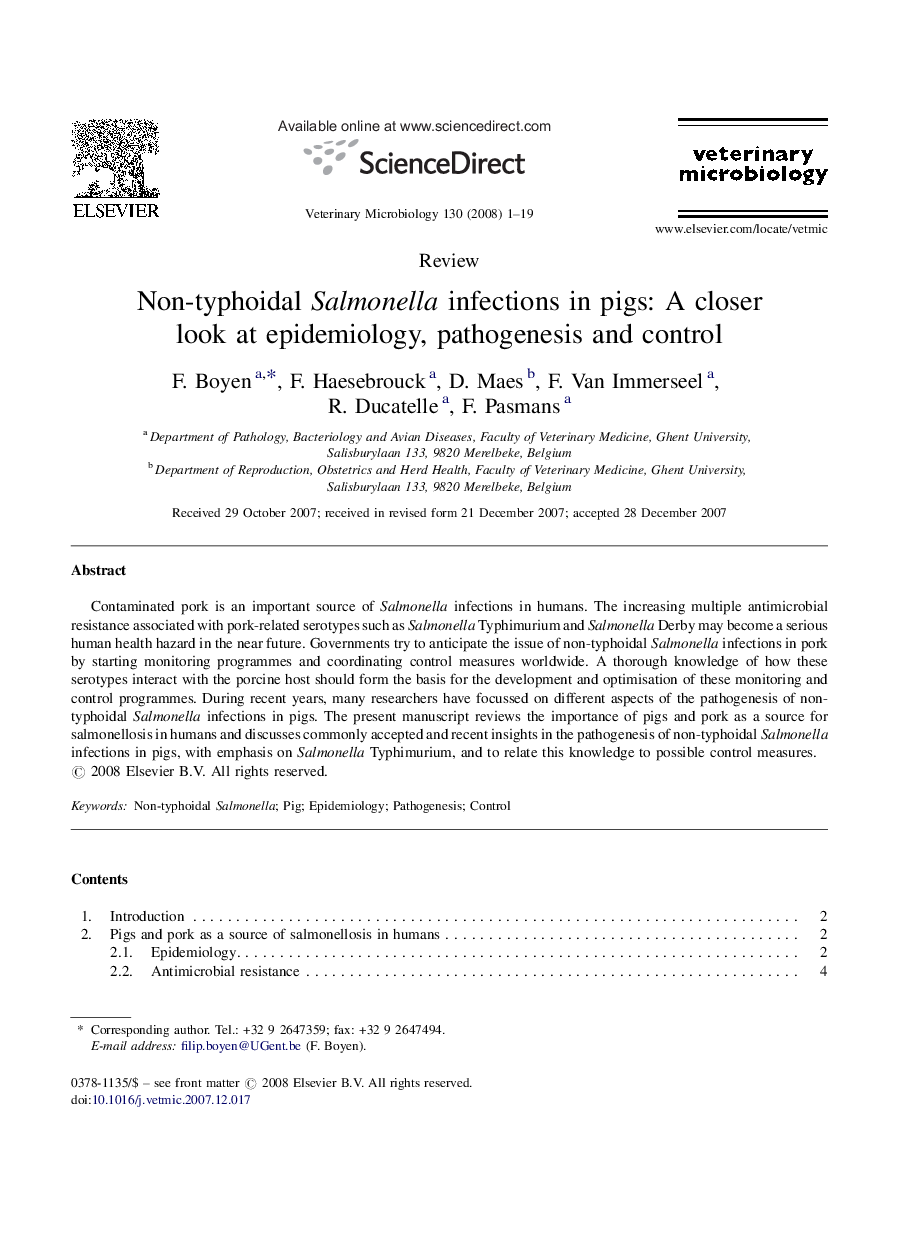| Article ID | Journal | Published Year | Pages | File Type |
|---|---|---|---|---|
| 2468802 | Veterinary Microbiology | 2008 | 19 Pages |
Contaminated pork is an important source of Salmonella infections in humans. The increasing multiple antimicrobial resistance associated with pork-related serotypes such as Salmonella Typhimurium and Salmonella Derby may become a serious human health hazard in the near future. Governments try to anticipate the issue of non-typhoidal Salmonella infections in pork by starting monitoring programmes and coordinating control measures worldwide. A thorough knowledge of how these serotypes interact with the porcine host should form the basis for the development and optimisation of these monitoring and control programmes. During recent years, many researchers have focussed on different aspects of the pathogenesis of non-typhoidal Salmonella infections in pigs. The present manuscript reviews the importance of pigs and pork as a source for salmonellosis in humans and discusses commonly accepted and recent insights in the pathogenesis of non-typhoidal Salmonella infections in pigs, with emphasis on Salmonella Typhimurium, and to relate this knowledge to possible control measures.
